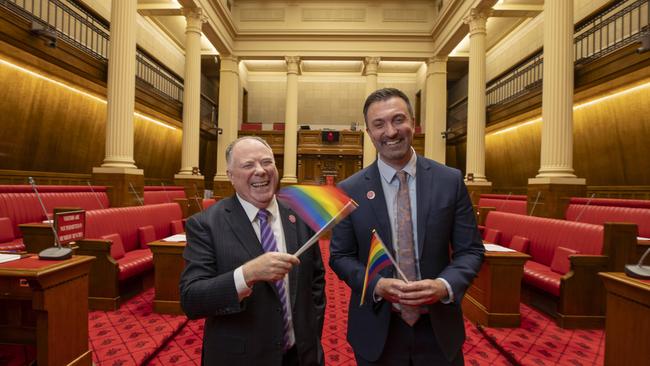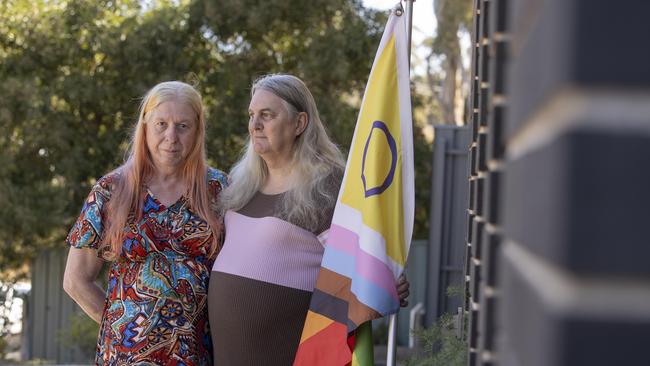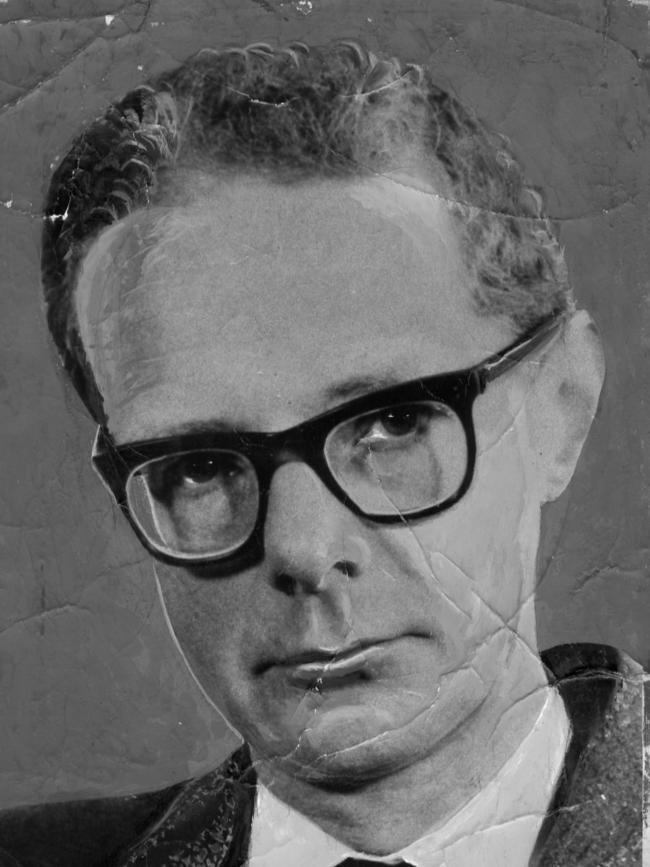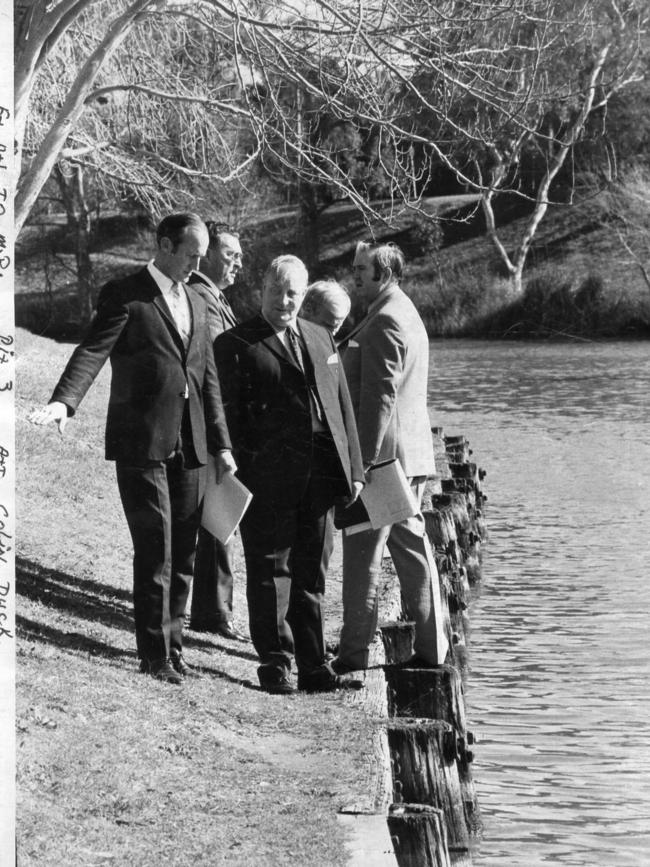SA MPs Robert Simms and Ian Hunter fear culture wars will see laws protecting the LGBTIQ community wound back
South Australia’s two openly gay politicians are seeing a rise in homophobic abuse and they blame culture wars fuelled in the federal election campaign.

SA News
Don't miss out on the headlines from SA News. Followed categories will be added to My News.
South Australia’s two openly gay politicians are seeing a rise in homophobic abuse as “the right is emboldened” by culture wars in the federal election campaign.
“There is more abuse on my social media pages, offensive descriptions of homosexual men, it’s demonstrating a shift,” upper house Greens MP Robert Simms said.
He feared “culture wars” prompted by the election of US President Donald Trump were also contributing to more verbal and physical abuse, pointing to around 30 people recently being arrested in Victoria for attacking gay men.
“When your political leaders embark on this path it gives people a freedom to come out on this publicly,” he said.
The Advertiser also recently reported that a transgender couple’s Adelaide Hills home was targeted by vandals.

It was a disappointing “shift” when Mr Simms and Labor MLC Ian Hunter were launching on Thursday a series of 50th anniversary events marking SA being the first state in Australia to decriminalise homosexuality in 1975.
Mr Hunter, who was the first openly gay man in the SA parliament when elected in 2006, said the groundbreaking legislation was prompted by gay law lecturer Dr George Duncan being thrown into the River Torrens and drowning.
Last week the University of Adelaide law faculty held its annual vigil near the university footbridge to mark his death that a Scotland Yard report blamed on three SA police vice squad members who were never charged.
Mr Hunter said events to mark the legislation’s anniversary would culminate in a re-enactment in state parliament of the decriminalisation bill being introduced.


The law was backed at the time by Rupert Murdoch, owner of The Advertiser.
Both MPs said several significant new laws supporting the LGBTIQ community had been introduced since, including marriage equality in 2017.
Mr Hunter is married to Leith Semmens and Mr Simms has a long-term partner.
However, the two recognise how quickly rights can disappear as events unfold in the US where Republicans are pushing to have same-sex marriage laws wound back.
“There’s a feeling of trepidation that this could be taken away again and we can see it in places like the United States, Hungary in the European Union and Poland declaring LGBTQ-free neighbourhoods,” Mr Hunter said.
The two were concerned the SA parliament would face similar bills as a more conservative Liberal Party already had introduced an anti-abortion bill that was defeated.
Many also voted against a “conversion therapy ban” bill last year that stopped people from being pushed into“therapy” to convert them from their sexual orientation or gender identity.
“(And) it was only four years ago that the gay panic provocation defence was changed,” Mr Hunter said.
SA was the last Australian state to abolish the law allowing a person accused of murder to claim they had experienced an unwanted homosexual advance and could use the ‘gay panic’ defence.
Mr Simms was the first openly gay man to represent SA in the federal parliament 10 years ago.
“I’m now in my 40s and I wouldn’t have the rights and freedom I have if it wasn’t for the work of those activists especially during the ‘70s when many risked their own safety, potential prosecution and many lost their jobs,” Mr Simms said.





